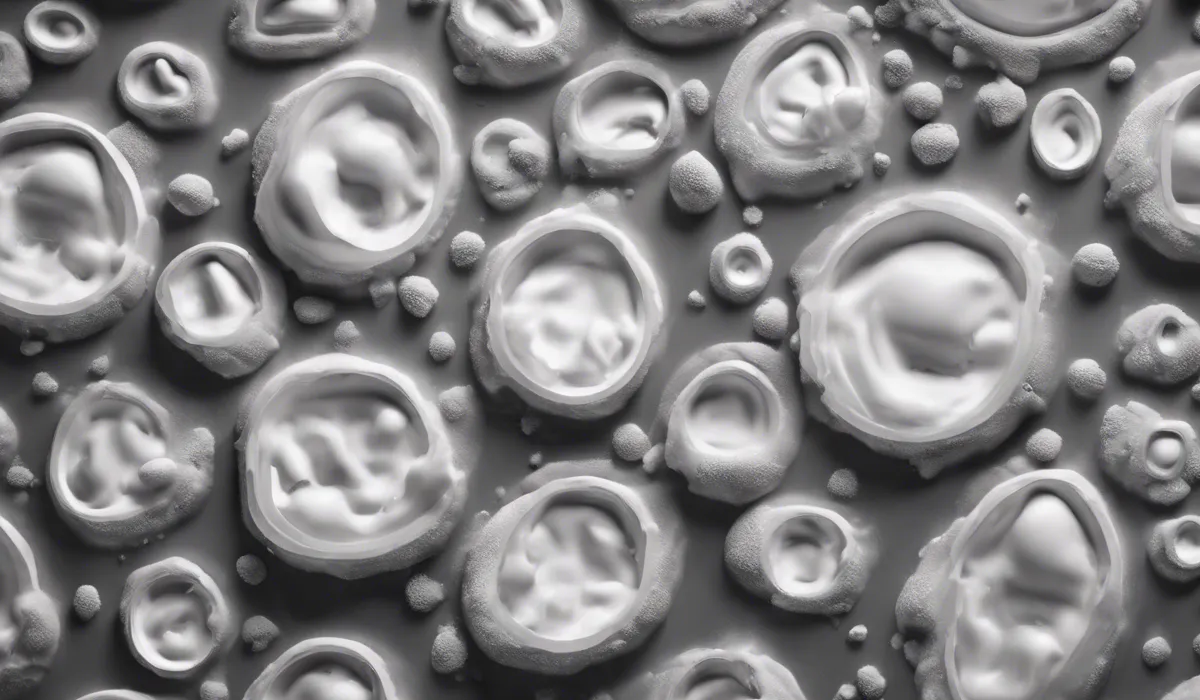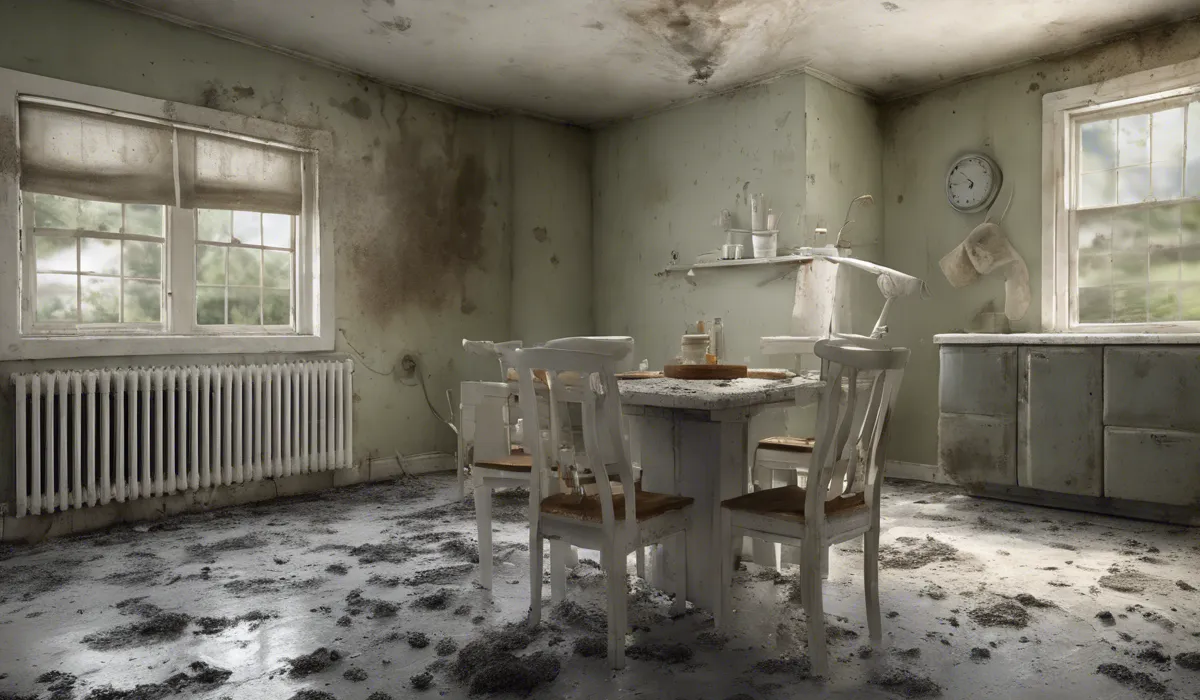Yes, mold exposure can cause dizziness. Inhalation of mold spores may lead to allergic reactions or respiratory issues. These health effects can trigger dizziness or lightheadedness in sensitive individuals.
Understanding Mold and Its Impacts on Health

What Is Mold?
Mold is a type of fungus that can grow indoors and outdoors. It thrives in warm, damp, and humid conditions.
Mold comes in various types, such as black mold, which is often found in buildings, and other forms that grow on food.
Common places where mold grows include bathrooms, kitchens, basements, and areas with water damage.
How Does Mold Exposure Happen?
People get exposed to mold through the air. When mold grows, it releases tiny spores that can be inhaled.
Touching moldy surfaces can also cause exposure. Breathing in these spores is common in places with poor ventilation or where water damage has occurred.
Common Symptoms of Mold Exposure
Mold exposure can lead to a variety of symptoms. These can include sneezing, coughing, sore throat, and runny nose.
Some people may experience eye irritation or skin rashes. For those with allergies or asthma, symptoms can be more severe, causing respiratory issues and allergic reactions.
Mycotoxins and Their Effects on the Nervous System
Some molds produce toxic substances called mycotoxins. These toxins can cause serious health problems when people are exposed to them over time.
Mycotoxins can affect the nervous system, potentially leading to headaches, memory loss, and concentration problems. They might also contribute to feelings of dizziness.
Link Between Mold Exposure and Dizziness

How Mold Can Cause Dizziness?
Dizziness can be a symptom of mold exposure. This feeling of being lightheaded or off-balance can occur when the body reacts to mold spores.
For people sensitive to mold, this reaction can be immediate or develop over time with prolonged exposure.
Exposure to Mold and Lightheadedness
When you breathe in mold spores, your body may respond as if it were a threat. This reaction can cause inflammation and congestion in the nasal passages, which can lead to a feeling of lightheadedness.
For some, this can be a temporary sensation, while for others, it may be more persistent.
Mold Illnesses and the Inner Ear
The inner ear is responsible for balance. Mold-related illnesses can affect the inner ear, either directly or through the immune system’s response.
When the inner ear is compromised, it can result in dizziness or vertigo. This can impact a person’s ability to stand or walk steadily.
Studies and Expert Opinions on Mold-Related Dizziness
Several studies have explored the link between mold exposure and dizziness. Experts agree that mold can be a factor in developing this symptom.
They note that individuals with pre-existing conditions like asthma or allergies are more likely to experience dizziness as a result of mold exposure.
Prevention and Remediation Strategies

Identifying Mold in Your Environment
Finding mold starts with looking for visible growth, which might appear fuzzy or slimy. Mold can be various colors, including black, white, green, or yellow.
You should also be aware of musty odors, which often indicate the presence of mold even if it’s not visible.
Preventing Mold Growth
To prevent mold, control moisture levels in your home. Use dehumidifiers and air conditioners to keep humidity below 60%.
Fix leaks right away, and dry wet areas within 24 to 48 hours to stop mold from growing. Good ventilation in bathrooms, kitchens, and laundry rooms is also essential.
Steps for Mold Remediation
If you find mold, it’s important to clean it up and fix the moisture problem. Small areas can be cleaned with soap and water or a mold-specific cleaner.
For large areas, it may be necessary to remove and replace the affected materials. Always wear protective gear when cleaning mold.
Seeking Professional Help
If you have a lot of mold, or if it keeps coming back, you might need to get professionals involved.
Mold remediation specialists can identify the source of the problem and remove the mold safely. This is especially important for those with health issues like allergies or asthma.
Considerations for Sensitive Individuals
People who are more sensitive to mold may need to take extra precautions. This includes using air purifiers with HEPA filters to remove spores from the air, regularly checking for mold growth, and avoiding areas known to be moldy.
It’s important to address any health symptoms with your doctor if you suspect mold exposure.
FAQs About Mold and Dizziness
Can exposure to mold cause dizziness?
Yes, exposure to mold can lead to dizziness, especially in individuals who are sensitive or allergic to mold spores.
What symptoms might occur with mold exposure?
Along with dizziness, symptoms of mold exposure can include respiratory issues, allergic reactions, headaches, and fatigue.
How do mold spores cause dizziness?
Mold spores can cause dizziness by triggering allergic reactions or respiratory problems that disrupt the body’s balance and equilibrium.
Is dizziness a common reaction to mold?
Dizziness is a less common symptom of mold exposure compared to respiratory symptoms, but it can occur in sensitive individuals.
What should I do if I feel dizzy and suspect mold exposure?
If you experience dizziness and suspect it may be related to mold exposure, seek fresh air immediately and consult a healthcare professional for advice.
Final Thoughts
Mold exposure is indeed capable of causing dizziness. When mold spores are inhaled, they can trigger allergic reactions or respiratory problems in certain individuals.
These adverse health effects may include symptoms such as lightheadedness or dizziness, particularly in those who are sensitive to mold.
